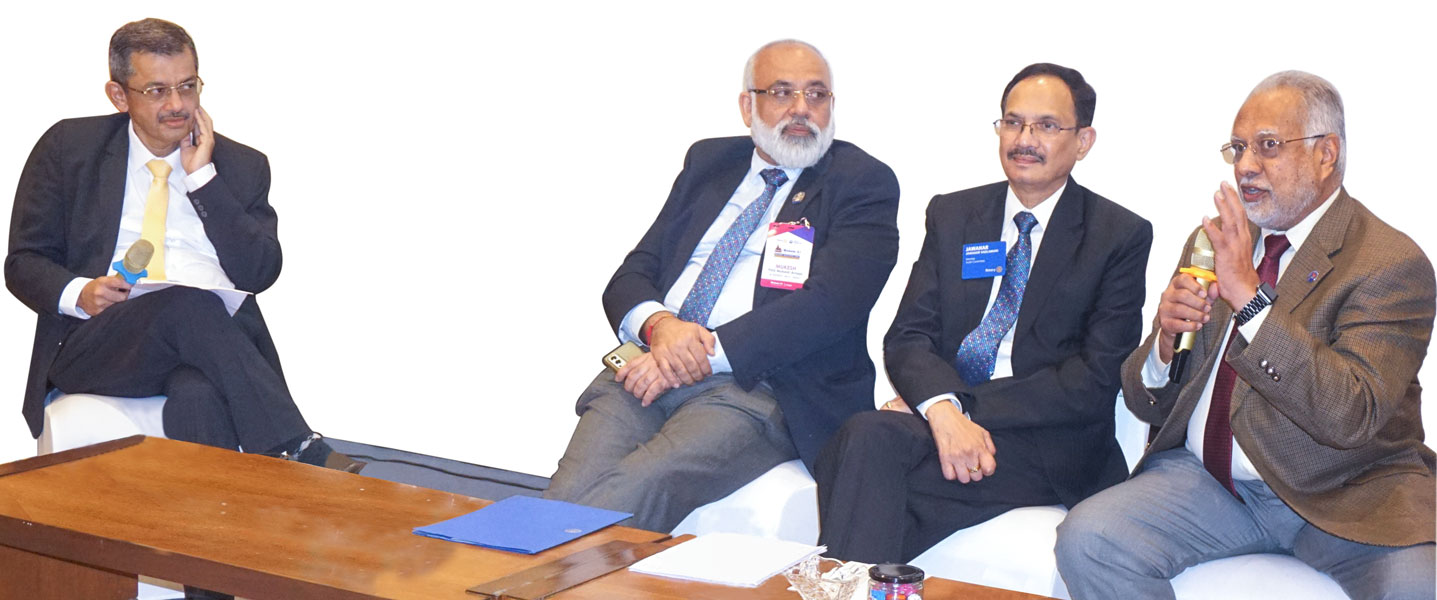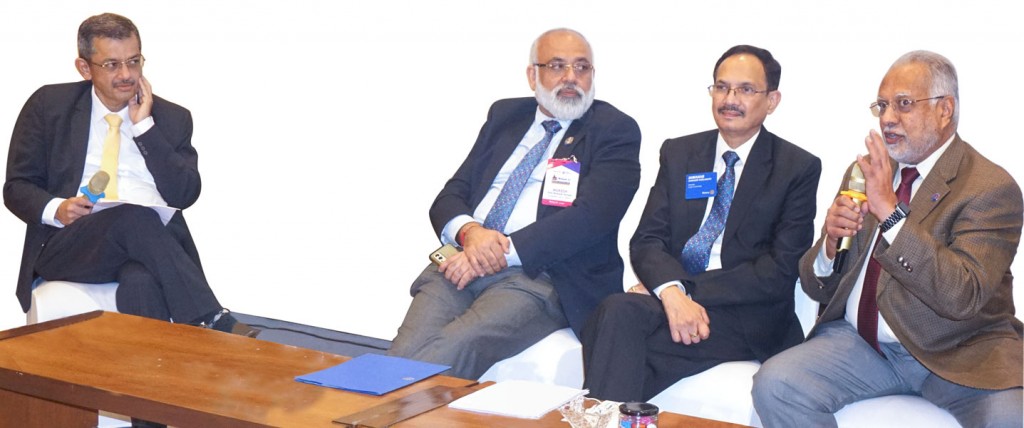
After being a district governor, the most important task of Rotarians is to discharge the responsibility of a CoL representative at the Rotary’s parliament in Chicago. Apart from projecting a good image of their districts and zones, they will be shaping up the future of Rotary, said Trustee-elect and PRID Bharat Pandya.
Speaking at the CoL seminar at the Mahabs 21 institute in Chennai, he urged the PDGs to do thorough homework by going through all the enactments in the binders as “the CoL offers great hope and opportunity to take Rotary forward, grow it bigger and make it a more responsible, agile, nimble and transparent entity.” The delegates have to study RI’s constitution manual, enactments (proposed legislations) and CoL procedures to reshape Rotary.
Giving a peek into history, Pandya said, “CoL was started in 1933 as part of the plenary session of an RI convention; officially recognised as Rotary’s parliament in 1972; became an independent body in 1977, holding council every three years; and from 2001, all councils are held at the RI headquarters in Chicago.”
At the CoL “you will feel the buzz in the air with an electric atmosphere at the sessions, learn, unlearn and relearn with active participation in the adoption of new enactments and amendments,” he said. When the then RI President Barry Rassin (2018–19) introduced the resolution of elevating Rotaract as equal partners in Rotary on the first day of CoL 2019, “it was defeated resoundingly. But next day, there was a discussion at the RI Board and the motion was adopted with a thumping majority on the last day.”
Prepare well
In the next four months, the CoL members have to study the enactments, decide on which ones to support or oppose, prepare for an impactful three-minute speech at the lectern by consulting Rotary leaders, said Pandya. “You have to decide when to speak as time is critical. Remember that you are representing your district, zone and your impact through enactments or amendments will take Rotary forward,” he said.
RID A S Venkatesh said, “a huge responsibility rests on the CoL reps as they discuss, debate and vote on the enactments, amendments and resolutions. Read the draft enactments, discuss them and apply your mind on which way to vote at the CoL.” As on date, there are 93 enactments, some of them very significant ones at the advisory board of the CoL, which if adopted will “shake-up Rotary.” Venkatesh urged the delegates to make full use of this institute session chaired by Rotary CoL vice-chair PDG T N Subramanian as “he will give a hands-on feeling of what you can expect at the CoL.”
Don’t canvas for votes
During a panel discussion chaired by Pandya, PDG Jawahar Vadlamani said canvassing for votes or asking support for an enactment is a strict ‘no’ at the CoL. Even a letter of appeal or handbill seeking support can be circulated only with the permission of the CoL chair at the hall. “Your speech must not be an extempore, but prepared well, and it is better to read it slowly and clearly from a typed or written script as nearly 50 per cent of audience will be from non English speaking countries,” he said.
CoL representatives must attend all sessions, collect the programme booklets and guideline kits to understand the nuances of the legislative body of Rotary, said Vadlamani. “It is not mandatory for delegates to vote on all enactments. But once you have studied all the proposed legislations, you are expected to vote for or against any of them.”
But what is the point in going to Chicago if you are going to abstain from voting on most resolutions, asked PRID Dr Manoj Desai. Stating that there is competition between RI directors across regions to get their enactments passed, he said, “after coming back, you can report to your DGs and circulate booklets to inform the clubs about the CoL resolutions.”
Make effective use of green, red and yellow flags during the voting process, said PDG Mukesh Arneja. “Be sure of what you want to do at the CoL sessions, take all the enactments in binders or an iPad; and make a clear, effective speech for or against the resolution to make an impact.” One can make a Point of Order to seek clarity on enactments by raising the yellow card (or flag).
Only those enactments that get 20 per cent of voting will be heard at the CoL for consideration; and those which get 80 per cent votes will get passed, said PDG Subramanian. “Around 30 per cent of CoL members don’t speak at all. But when you move an enactment, point of order or amendment, make it noteworthy and impactful,” he said. Take extra care over the wording of your resolutions and weigh the impact they would have on the Rotary worldwide, “instead of being myopic to serve the interests of just your district or zone.” Around 60 PDGs participated at the session co-chaired by PDG Sharat Jain.






